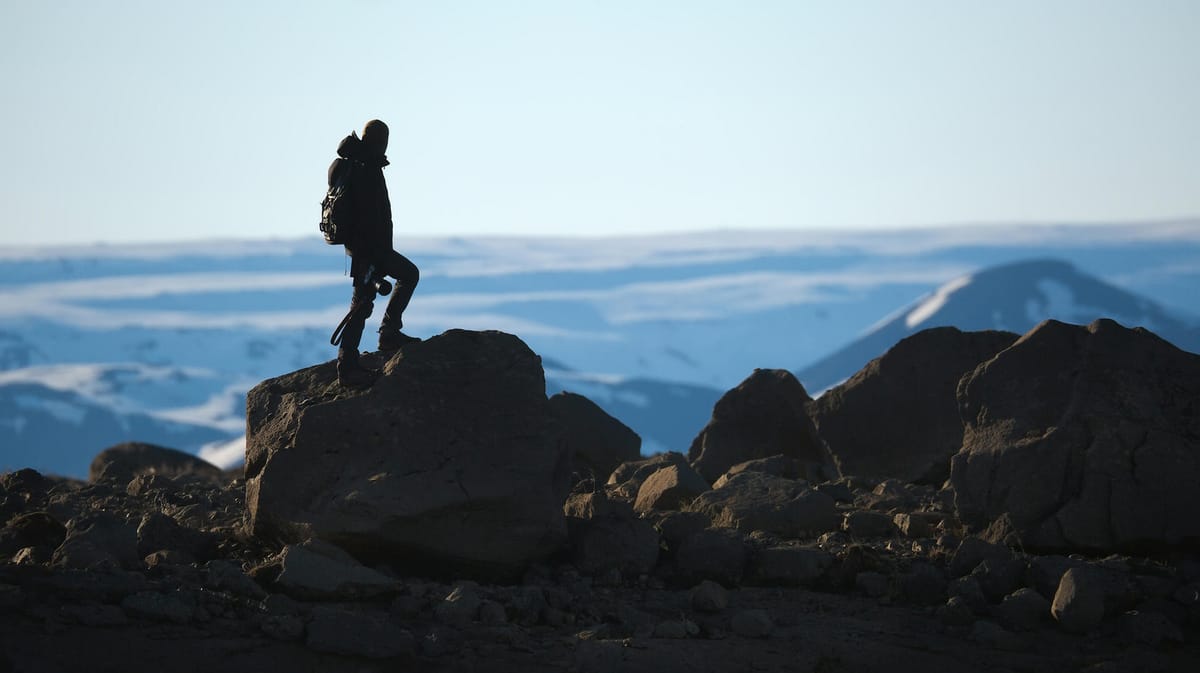Wide hiking, hiking over several days to weeks, is becoming increasingly popular. Many people discover the beneficial effect on body and soul.
In addition to stress relief, the movement in the fresh air has other advantages. When hiking, the brain is supplied with oxygen and performance increases. Being at the moment, slowing down and enjoying nature: this promotes relaxation and stress reduction. What exactly does mountain hiking with body and psyche and why trying out is worthwhile, especially in stressful times.
- stress: Causes, symptoms and stress management
Sporty mountain hiking or relaxed entry -level tours: there is something for everyone among the wide -wing hiking tours. Depending on how actively you want to experience nature, wide hiking routes can be selected, which include between 6 and 30 daily stages.
You can book the tours through an organizer or plan yourself. During the hiking tour, markings, signs, information material and hiking maps ensure orientation. In the world experienced as always stressful, wide hiking is like a pause button for the head.
The German Alpine Association wanted to know whether hiking can reduce stress and in 2019 commissioned the study “Stress reduction through mountain hiking” at the German University of Health and Sport in Berlin. Accompanied by an experienced mountain coach, 24 heavily stressed people hiked four mountain hiking tours for a year in all seasons. Physical parameters such as blood pressure and cortisol values were recorded as well as psychological data.
After evaluating questionnaires, interviews and diaries, the study authors Professor Dr. Sven Sohr and Toni Abbattista to the result: regular hiking reduces stress life and promotes positive feelings such as satisfaction, gratitude, humility and meaning. The longer the test subjects hiked, the more satisfied they estimated.
Even a few months after the hiking tour, some subjects stated that they would benefit from the hikes and developed a certain stress resistance. And not only that: the blood pressure of the participants also dropped during the hiking year, and cardiovascular complaints improved. Many also retained hiking after the test year. But what exactly makes hiking such a soothing hobby?
Among other things, muscles, bones and joints are strengthened when hiking, the body’s oxygen supply are improved, the cardiovascular system stimulates, the blood circulation improves, the metabolism is stimulated, the immune system strengthened and stress hormones are set up and happiness hormones.
“About 70 percent of all muscles in the body are set in motion on a brisk walk or hiking. The whole body is active,” explains Dr. Andreas Hagemann, specialist in psychiatry and psychotherapy and medical director of the Merbeck private clinic in the North Rhine-Westphalian Wegberg. “Continuous tours also reduce body weight, blood pressure and body fat within a short time. The risk of serious diseases such as Alzheimer’s, heart attack, diabetes, depression or a stroke drops.”

Dr. Andreas Hagemann is a specialist in psychiatry and psychotherapy. As a medical director, he heads the UA for psychosomatic pain therapies as well as burn-out and stress diseases specialized in Merbeck private clinic in the North Rhine-Westphalian Wegberg.
Not only muscles, bones and joints benefit from the movement. The brain is also activated positively. “A short hike promotes the blood circulation of certain brain regions. The better blood circulation leads to a higher release of endorphins, which benefits the mood, happiness and relaxation,” explains Hagemann. In addition, concentration and memory performance are promoted and possible fears are solved. And sleep can also improve. “
Wandering is like a long mindfulness exercise: it offers the opportunity to arrive in the here and now, to linger at the moment, to experience nature and to have a certain distance and stress for a long time. That reduces stress. “In the days of touring on foot, you have time to calm down, to distract yourself from problems with cognitively and to find yourself,” explains the stress expert.
In addition, the challenges associated with the hike strengthen self -confidence and raise the mood. Many become braver with every tour and trust more – which can also be strongly transferred to everyday life. This makes it possible to become more resistant to stress, to feel fewer fears, to react more relaxed and to go through the day more carefully.










